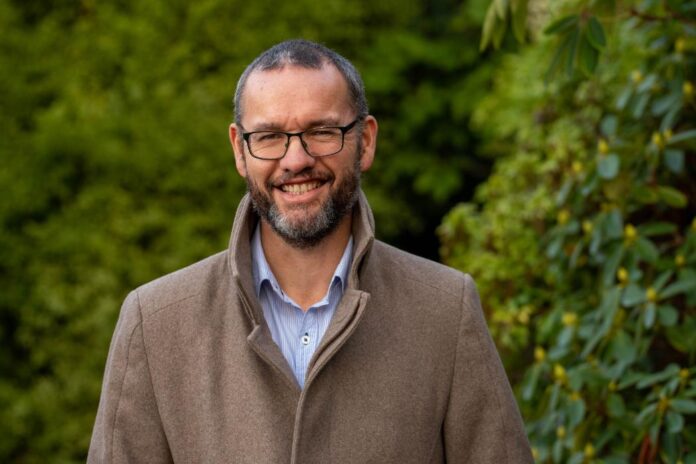Source: University of Canterbury
10 March 2021
Having dual access to both traditional Māori knowledge and Western science can lead to better environmental outcomes, says a University of Canterbury (UC) ecologist.
-
Adjunct Associate Professor Shaun Ogilvie is one of 24 Māori academics featured in a new book. Photo: Grant Maiden
Adjunct Associate Professor Shaun Ogilvie (Te Arawa and Ngāti Awa) is one of 24 Māori academics featured in a new book Ngā Kete Mātauranga: Māori scholars at the research interface.
Associate Professor Ogilvie specialises in scientific research that is grounded in Māori values and mātauranga (traditional knowledge) and focuses on the connections between people and nature.
He says Māori knowledge systems and modern science need to have an equal footing to help solve environmental challenges. “The idea of humans not being connected to our environment is a problem that underpins a lot of the climate issues we are facing now.
“Returning to indigenous ways of thinking that emphasise how people are connected with nature can lead to some innovative solutions.”
Associate Professor Ogilvie, who is also the Director of Christchurch company Eco Research Associates Ltd, says mātauranga Māori and Western science are different but they can be complementary rather than competing against one another.
For example, mātauranga Māori has informed his research into isolating a naturally occurring toxin from a native plant (tutu) that could be used as an alternative to the poison 1080. He has also explored the commercial feasibility of using mātauranga Māori-based traditional fish traps (pots called tāruke with an entrance at the top) instead of commercial trawling to reduce bycatch, and combined science and mātauranga to help mitigate the health risks from a neurotoxin found in shellfish.
It was while he was studying towards his Masters degree in Ecology at Otago University that Associate Professor Ogilvie began to question how science could be applied in a way that was useful for Māori communities and whether it could encompass Māori knowledge and perspectives.
He says the landscape of science – particularly in ecology – has changed over the past 30 years, and Māori knowledge systems have become naturally recognised as a valuable source of wisdom.
He believes there is now more support and encouragement for Māori university students. “There’s more scope for having a conversation about things Māori within the University compared to when I was coming through, but there’s still some way to go. We could do with a lot more Māori professors.
“I think the area where change needs to happen is in the higher levels of science funding institutions where there’s an inherent bias towards Western ways of doing science.”
Associate Professor Ogilvie studied te reo at university, first at Otago, and then at UC, to better understand his heritage and he says learning the language gave him a better understanding of mātauranga Māori as a way of being and engaging in the world.
He writes in the book that it was also a way to redress the balance as his late mother Ngarokitawhiti (Noeleen) Ogilvie was punished as a child at school for speaking te reo.
He has dedicated his chapter, called Curiosity and Connection, to her, and adds that his curiosity about the natural world was nurtured growing up in Waiuku, near Auckland, with his Pākehā father who treasures native flora and fauna.
The other UC academic featured in Ngā Kete Mātauranga is Head of Aotahi School of Māori and Indigenous Studies Sacha McMeeking.
- Ngā Kete Mātauranga: Māori scholars at the research interface is edited by Jacinta Ruru (Raukawa, Ngāti Ranginui) and Linda Waimarie Nikora (Tūhoe, Te Aitanga-a-Hauiti) and published by Otago University Press.



